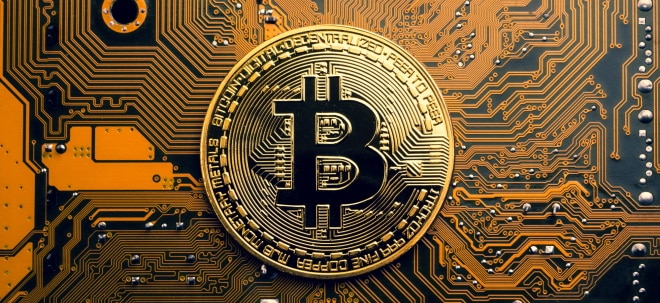| Poll: Gas Prices Will Make '08 Economy Sputter by Connie Prater, CreditCards.com
Tuesday, December 18, 2007 provided by
  Americans' longstanding addiction to gasoline will continue well into 2008, despite rising fuel costs, and may contribute to a slowdown in the overall economy, a new CreditCards.com poll suggests. Americans' longstanding addiction to gasoline will continue well into 2008, despite rising fuel costs, and may contribute to a slowdown in the overall economy, a new CreditCards.com poll suggests.
Two out of three Americans say they'll cut back on spending for other things as a result of higher energy costs in 2008, with nearly a quarter saying they'll cut back significantly on other spending. If they follow through, it will not bode well for the economy in 2008, say oil industry analysts and economists. Rising gas prices, the housing slump, the sagging dollar, the employment outlook and the stock market all may converge during the year, boosting the odds of a recession, they say. Energy prices and recession Kajal Kapur, a Virginia energy and environmental consultant, says the cost and availability of energy will be a key player in how the overall economy fares: "It would definitely contribute to the slowdown of the economy because of the multiplier effect: Spending less would lead to less consumption of those things and less jobs being created in those areas." "Recession means six consecutive months of reduced growth. That's where we're going," says Alice Simon, an economics professor at Ohio Wesleyan University. Rising oil and gas prices make producing many of our goods and services more costly. "If the cost of producing gets too expensive and you can't pass that cost on to consumers because they're already strapped, the economy slows down and it lays off people … then you have a recession." "Recession is a big word," says Perry Sioshansi, president of Menlo Energy Economics, a San Francisco energy consulting company. "A lot of things have to happen: the credit squeeze, housing situation, job market and stock market. Energy alone, that by itself is not going to make it." The poll, commissioned by CreditCards.com and conducted by GfK Roper Public Affairs & Media, surveyed 1,004 American adults in a random telephone poll Dec. 7-9, 2007. A majority say they expect oil and gas prices to get worse, and some have cut back on driving, but there's a high tolerance for even higher prices. Driven to pay The poll found: - Seven of 10 of those surveyed expect gas prices to be higher a year from now. Only a fifth (22 percent) said they believe prices will be the same and only one in twenty believe they will be lower.
- An increase of less than another dollar will cause only four in ten to cut back on driving.
- Of the people who buy gas, three out of five (59 percent) have already cut back on driving. Even more (69 percent) among those with incomes of less than $30,000 a year say they have done so.
- Nearly one in four (23 percent) say they would not cut back, no matter the cost of gas -- and that's true of 40 percent of those who have not cut back yet.
More than half (58 percent) say it'll take another dollar a gallon price increase before they'll cut back more on driving. - A quarter of Americans say they will cut back a lot on spending for other things as a result of high energy costs. More than two-thirds say they'll cut back on other spending at least a little.
- Nearly 12 percent of Americans say they will have to borrow money to pay winter heating bills; the figure rises to 23 percent among those earning less than $30,000 a year. Nine percent say they will use their credit cards to be able to afford their heating bills.
- Seven in 10 Americans (71 percent) say they will lower their thermostats this winter in an attempt to curb heating costs.
Northeasterners, with fewer wide open spaces to traverse, are least likely to have cut back on driving. Those earning more than $75,000 a year are least likely to cut back on driving, no matter what the cost, the poll shows. 2008 projections Americans' pessimism about the cost of fuel may be based on a sense that the inevitable is coming. The Energy Information Administration (EIA), the federal agency that tracks and distributes energy data, projects demand for oil worldwide will outstrip supplies in 2008 -- pushing prices for heating oil, gasoline and diesel fuel to historically high levels. In its Dec. 11 short-term outlook statement, the agency expects gasoline and diesel fuel to average "well over $3 per gallon" and gasoline prices may spike to $3.40 a gallon by spring 2008. National retail gas prices averaged $3 a gallon for regular and $3.33 a gallon for diesel on Dec. 10, 2007, according to EIA data. More than $100 a barrel for oil? Complicating the gas and oil outlook for the future are roller coaster-like swings in oil prices over the past two years. Crude oil averaged $56 a barrel in 2005 and $66 a barrel in 2006. The price shot up to $99.16 a barrel on Nov. 20, 2007. The EIA projects prices will average more than $80 a barrel in 2008. Industry observers say these dramatic swings in oil prices make forecasting more difficult. They cite a number of factors contributing to price growth, including: - Increases in global oil demand.
- Production cuts by the Organization of Petroleum Exporting Countries (OPEC).
- The inability of nonOPEC oil production to keep up with global demand.
- Political uncertainty in key oil-producing countries across the globe.
- The decline in the value of the dollar.
- The growth of speculators who drive up oil prices beyond the level expected under normal supply and demand.
"No one has been able to accurately and consistently forecast oil prices -- not oil companies, governments, or the Wall Street investment companies," Fadel Gheit, managing director and senior oil analyst for Oppenheimer & Co. Inc., testified Dec. 11 to a U.S. Senate subcommittee investigating speculation in the crude oil industry. http://finance.yahoo.com/banking-budgeting/...Make-08-Economy-Sputter |


 Thread abonnieren
Thread abonnieren




 Americans' longstanding addiction to gasoline will continue well into 2008, despite rising fuel costs, and may contribute to a slowdown in the overall economy, a new
Americans' longstanding addiction to gasoline will continue well into 2008, despite rising fuel costs, and may contribute to a slowdown in the overall economy, a new 